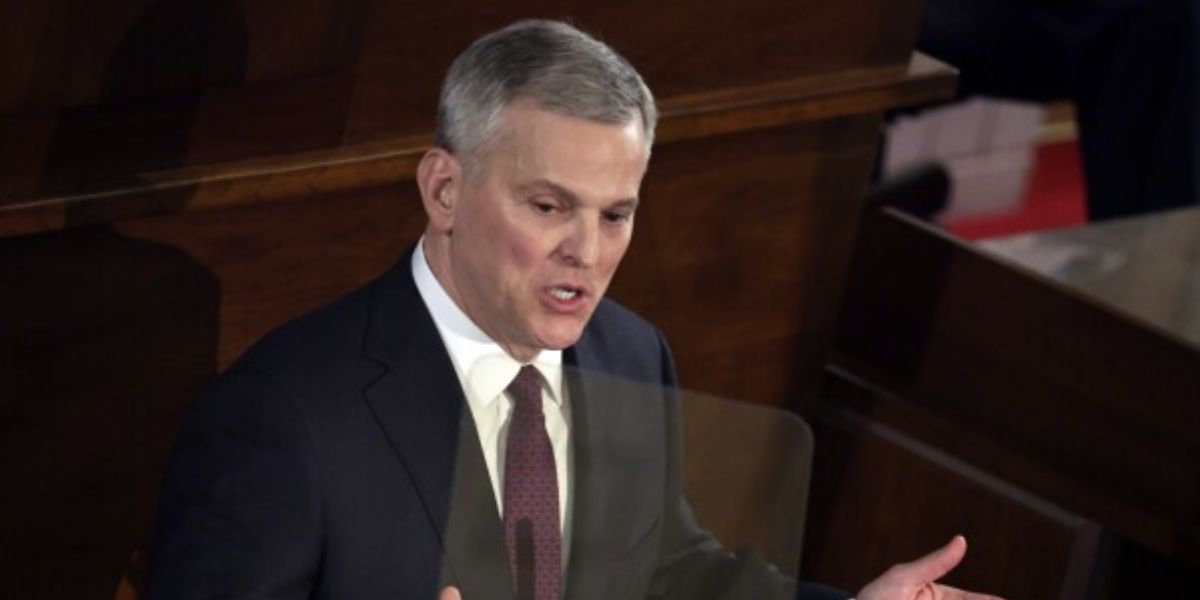The differences between the Republicans who control both General Assembly chambers on taxes, salaries, and job cuts are made clear by the North Carolina House’s release of its state government budget proposal.
Its plan to spend $32.6 billion in the year starting July 1 and $33.3 billion the following year, which are the same amounts Senate Republicans agreed to for their competing two-year budget approved last month, received preliminary approval from the House late Wednesday with strong bipartisan support.
With projections of flat or declining tax collections, inflation, and uncertainty surrounding federal government spending, the amounts show a more strained fiscal picture.
House Appropriations Committee top chairman Rep. Donny Lambeth said, “We’ve had to tighten the belt a little bit more than we normally have.”
However, the chambers’ paths to those numbers reveal significant points of contention as they work to reach a compromise that they hope will be acceptable to new Democratic Governor Josh Stein, or garner enough legislative support to override Stein’s veto.
House is more cautious about lowering tax rates
A previously approved law that lowers the current 4.25% individual income tax rate to 3.99% in 2026 should remain in effect, according to GOP leaders in both chambers.
However, the Senate’s plan to lower that rate to 3.49% in 2027 and 2.99% in 2028 is opposed by the House due to concerns about revenue shortages.
By increasing the revenue thresholds set forth in the current law that state coffers must surpass before the rate automatically drops, the House would also make it more difficult to bring the rate below 3.99%. With a schedule that could lower the rate by one day to 1.99%, the Senate leans towards a more aggressive threshold.
Stein has cautioned that if the current thresholds are maintained, they may result in “self-inflicted fiscal pain” due to a reduction in revenues.
Senate Republicans have played down these concerns, and outside conservative organisations contend that the House budget would actually increase taxes by at least $2 billion a year, according to legislative staff, in comparison to the current legislation.
Ahead of Wednesday’s vote, the national conservative organisation Club for Growth issued a warning on X, saying that anyone who supported the bill that included the “tax increase in North Carolina should expect to be held accountable on election day, and kiss their political future goodbye.”
As negotiations with Senate counterparts begin, some House Republicans viewed the threat as a scare tactic and were unfazed. House leaders also point out that by raising standard deductions and removing the tax on the first $5,000 of a worker’s tips, the plan would further reduce income taxes.
During a pause in Wednesday’s debate, House Speaker Destin Hall stated, “Nothing outside of this building is going to change my belief and this (GOP) caucus’ belief that this budget is… the more fiscally conservative between the two chambers.”
Don’t Miss:
- Congress Passes GPO Fairness Act, Eliminating Controversial Social Security Rule
- New York State Announces June SNAP Payment Schedule
- Connecticut AG Takes Legal Action Against Unauthorized Weight Loss Drugs
Increased teacher pay in the House Plan
With an emphasis on early-career teachers, the House plan would significantly increase teacher pay over the Senate proposal.
Over the next two years, the House proposal would raise K–12 teachers’ state-funded salaries by an average of 8.7%. Not including the $3,000 bonuses that the Senate also approved, the Senate’s proposed raises are significantly less than half of that percentage.
According to the House, its proposal would raise first-year teacher pay to the highest levels in the South-east. Stein’s March budget proposal would increase teacher pay by an average of more than 10%.
The house cuts open positions deeply
While the Senate version calls for the elimination of 850 vacancies, House Republicans would order state agencies, departments, and institutions to close nearly 3,000 vacancies. As of last month, over 14,000 positions were open in state agencies, according to the Office of State Human Resources.
A directive for agencies to eliminate 20% of their open positions accounts for about two-thirds of the House’s cuts. The savings are meant to be used to raise salaries in order to attract and retain employees for important, difficult-to-fill positions.
Talks might go on well into the summer
In preparation for House-Senate discussions on a single plan to present to Stein, the budget bill will return to the Senate following an anticipated final House vote on Thursday.
Republicans have been fighting each other and the Democratic governor in recent years, making it challenging to meet the deadline of July 1st for an enacted budget. Given the tax debate this week, intraparty talks within the GOP may go well into the summer.
Stein may have some sway because the Legislative Republicans are currently one seat away from a veto-proof majority.
Stein supports the House plan over the Senate for the time being. He commended its plans for teacher pay, lowering taxes for working families, and lowering income tax rates “only when the economy is growing,” according to a statement made public during Wednesday’s floor discussion.



